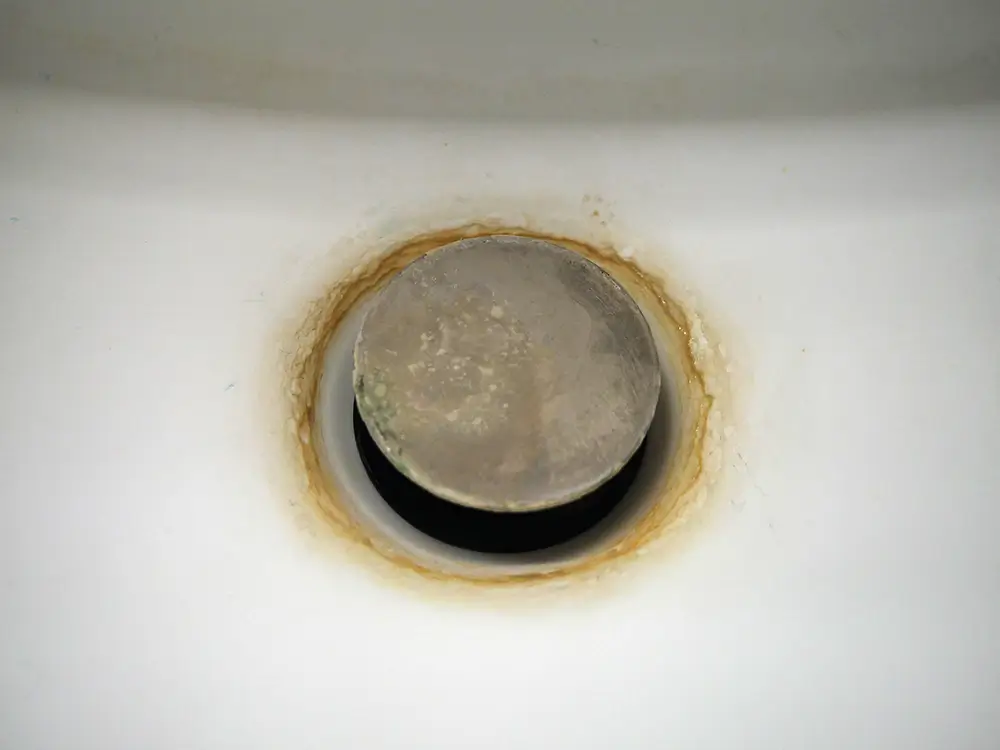
If you live in Albuquerque, hard water is more than just a nuisance—it’s a silent culprit behind plumbing damage, appliance failure, and rising energy bills. At Number One, we seethe effects of mineral-heavy water every day in homes across the metro area. If you're dealing with strange buildup, failing water heaters, or inefficient appliances, hard water might be to blame—and we can help.
Hard water contains elevated levels of dissolved minerals, mainly calcium and magnesium. These minerals come from natural deposits in theRio Grande Basin and surrounding geology. While hard water isn't dangerous to drink, it wreaks havoc on plumbing systems, fixtures, and appliances over time.
Extremely common. Albuquerque's municipal water supply routinely tests high for hardness. Residents across the city—especially in older neighborhoods—frequently experience the effects. Without proper filtration or treatment, even new plumbing systems can suffer long-term damage.
Hard water drastically reduces the lifespan of major appliances. Dishwashers, washing machines, and refrigerators with water dispensers or ice makers accumulate mineral deposits on internal components. Over time, these deposits cause parts to fail or clog
Both tank and tankless water heaters are vulnerable. Mineral buildup on heating elements forces water heaters to work harder, leading to longer heating times, higher energy bills, and more frequent repairs. If not properly maintained, Albuquerque homeowners can expect premature failure. “We see tankless water heaters clogged with scale all the time,” says a Number One plumber. “Without softening the water, you’re burning out a high-efficiency system way too early.”
Faucets, shower heads, and fixtures can become clogged with scale. In many cases, cartridges and stems become calcified and stop functioning altogether. This leads to reduced water pressure, dripping, and the need for frequent part replacement. “We replace faucet cartridges weekly because of mineral damage. It’s something most homeowners don’t even think about until it stops working,” explains our technician.
In Albuquerque, many homes use evaporative coolers. These systems are especially vulnerable to mineral buildup. Pads become clogged with scale, reducing airflow and cooling efficiency.
“Evap coolers are a big one,” says our plumber. “Hard water cakes up the pads and makes the whole unit work harder. It’s not just less cool air—you’re wasting water and electricity, too.”
Mineral buildup doesn’t just affect appliances—it builds up inside your plumbing pipes, narrowing water flow and leading to higher pressure that can cause leaks. Over time, this contributes to joint failure, corrosion, and increased risk of water damage.
You don’t need a lab test to tell if your home has hard water. Look for these common signs:
We recommend several water treatment options tailored to Albuquerque homes. Every property is different, but here are a few solutions we trust:
These are the first line of defense and help remove larger particles from your water before they reach your plumbing system. Ideal for homes with visible debris or cloudy water.
These systems replace calcium and magnesium ions with sodium. They're extremely effective at reducing hardness and preventing scale buildup. They do require maintenance and salt refills but are a proven solution for long-term protection.
Great for homeowners looking to avoid salt or for properties with irrigation systems. These systems use chelation or citrus extract to alter mineral properties, reducing buildup without removing minerals entirely.
An alternative to traditional salt systems, potassium-basedsofteners are more environmentally friendly and safer for watering landscapes.In Albuquerque’s climate, that’s a major benefit for homes with xeriscaping ornative plants.
Hard water damage doesn’t show up all at once. It accumulates over time—layer by layer, clog by clog—until it leads to major repairs or full appliance replacement. Addressing it early with a water softener or filtration system can extend the life of your plumbing and save you thousands of dollars over the years.
If you're installing a new water heater, upgrading appliances, or noticing signs of buildup, now is the perfect time to act. Let Number One assess your water quality and recommend the right solution for your home.
At Number One, we’ve served Albuquerque for over 20 years. Our licensed plumbers have first hand experience dealing with the effects of hard water on every kind of home—from historic adobe homes in the North Valley to newer builds in the Westside.
We offer:
Don’t wait for hard water to destroy your appliances or damage your plumbing. Contact Number One at (505) 999-9567 today to schedule your water quality assessment or speak with a licensed technician. Whether you’re curious about saltless softeners or ready to install a full filtration system, we’ll help you make the smart choice for your home and your wallet.
Hard water contains high levels of calcium and magnesium. In Albuquerque, it's especially common due to the area's natural geology. Over time, hard water causes scale buildup that damages plumbing, appliances, and evaporative coolers.
Minerals in hard water collect inside pipes and fixtures, reducing water flow and pressure. Over time, this leads to calcified faucet cartridges, clogged showerheads, and potential leaks due to increased pressure or joint failure.
Yes. In both tank and tankless systems, mineral buildup coats heating elements and internal surfaces, forcing the unit to work harder. This reduces efficiency, increases energy bills, and shortens the lifespan of the heater.
Common signs include white residue on faucets, low water pressure, dry skin after showers, spots on dishes, soap that doesn't lather well, and unusual noises coming from your water heater.
Drainage problems can be the result of clogging.The age of your pipes might also be a factor. Slow drainage might indicate a large clog, roots in the pipeline, or backups from the sewer. If these problems become frequent or worsen, be sure to contact a professional plumber.
Number One offers sediment filters, salt-based softeners, salt-free citrus systems like Nuvo, and potassium-based softeners ideal for homes with irrigation. We assess your water and recommend the best solution to protect your plumbing and appliances.